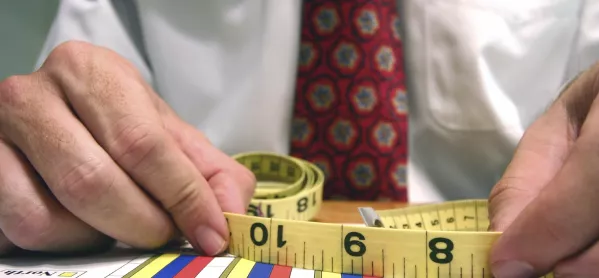Here’s a question for you: how do you hold schools to account for the progress of pupils who fail to reach the minimum standard required to sit tests designed to measure progress?
Back in 2016, the Department for Education came up with an answer for key stage 2 pupils who were “below the standard of test”. In the absence of a test score, these pupils (often those with SEND) were assigned a “nominal score” at KS2 based on their “pre-key stage” teacher assessment. It seemed like a reasonable solution.
But there was a problem: the benchmark estimates for these pupils were too high. This is because the lower prior attainment groups that these pupils fell into also included pupils who have English as an additional language (EAL) and who had similarly low key stage 1 starting points. The two groups cannot be distinguished in a pure (i.e., non-contextualised), value-added model and are therefore treated the same - ultimately being compared against the same benchmarks at the next key stage.
Due to the higher average attainment of the EAL pupils at KS2, the estimates for pupils in lower prior attainment groups were pushed up, and the low nominal scores that many SEND pupils received ensured they fell way short of these lofty benchmarks. Schools with high proportions of “pre-key stage” pupils (or small schools with just one or two) were therefore hammered in performance measures.
‘Bodge’ job on progress scores
The DfE attempted to mitigate these issues in 2017 by introducing data from special schools into the system. The aim was to decrease the overall KS2 benchmarks for pupils in the lower prior attainment groups. And it worked - sort of.
Benchmarks for the lowest prior attainment groups did indeed go down and progress scores improved, particularly for those assessed on p-scales at KS2. But the problems of very low progress persisted for some, particularly those assessed as “pre-key stage” at KS2.
So this year the DfE tried something new: capping extreme negative progress scores. This ensures that progress scores cannot fall below a certain threshold, but the threshold differs depending on the prior attainment group - and, you’ve guessed it, the lower-prior-attainment groups have the lowest cap.
A lower-prior-attaining pupil assessed as “pre-key stage” at KS2 can still end up with a score as low as -27. That’s a point off every child in an average-sized primary cohort.
Essentially, the capping of extreme negative progress scores is a bodge to mitigate the issues of the earlier bodge to include as many pupils as possible in progress measures by assigning nominal scores to pupils who can’t take the tests.
It’s a double bodge that isn’t working. Time for a rethink.
James Pembroke founded Sig+, a school data consultancy, after 10 years working with the Learning and Skills Council and local authorities. He also works with Insight





